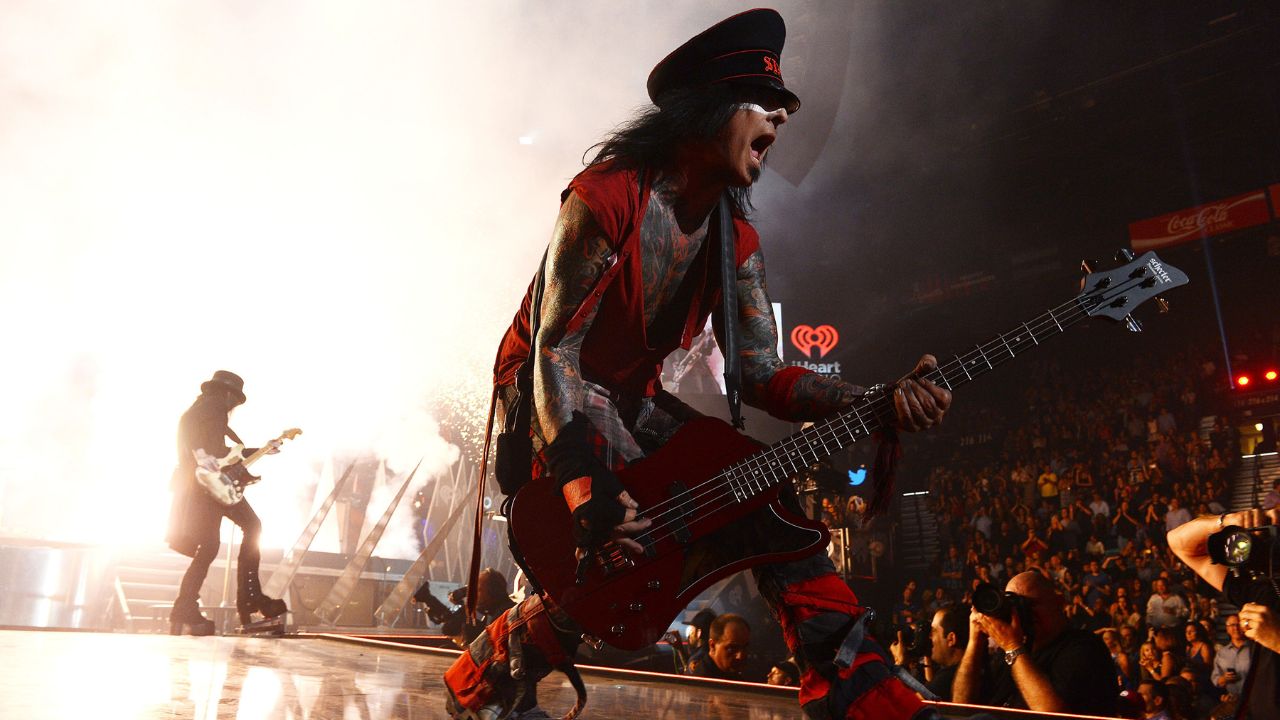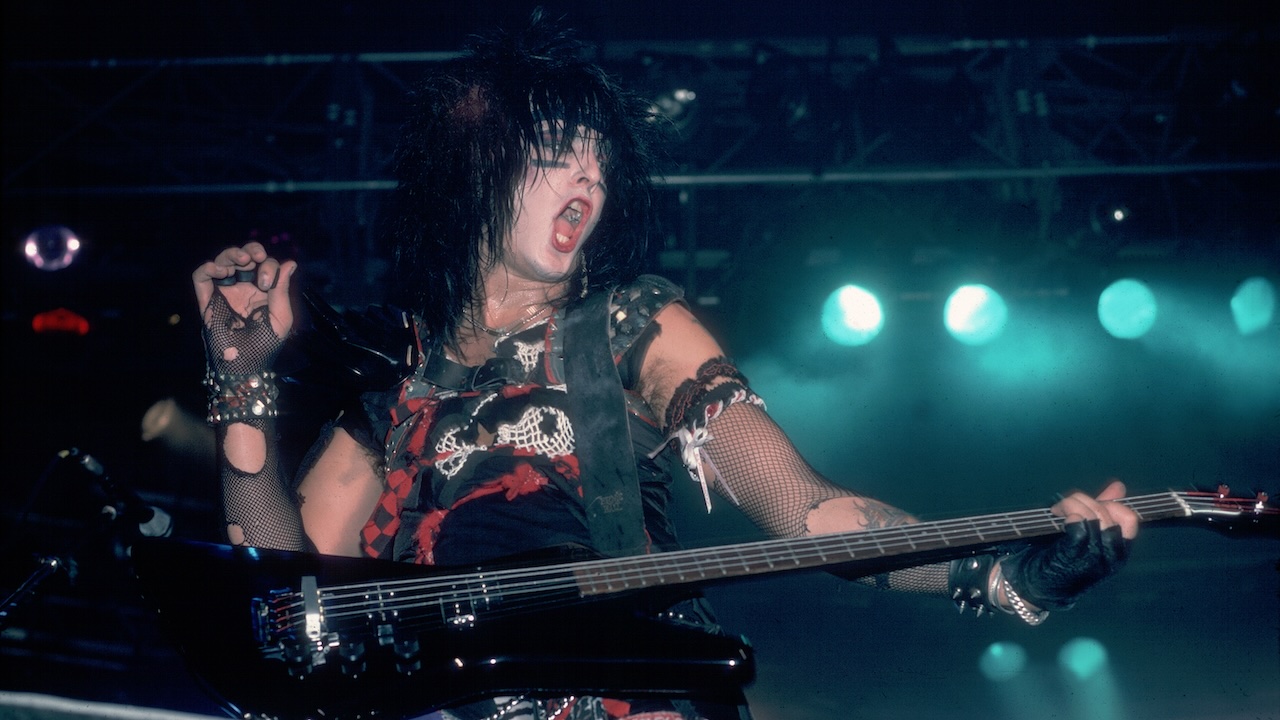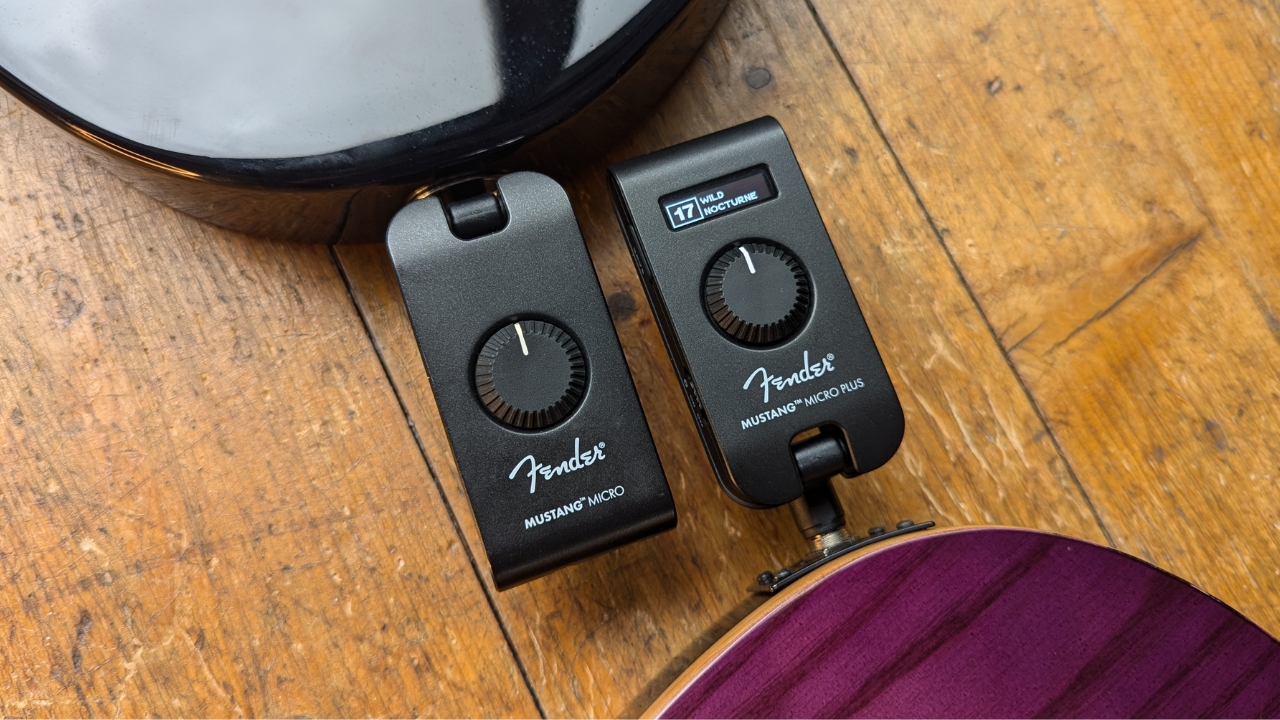“I’d just hit the bass really hard and overdrive it with my hand. There’s no need to have any finesse if you’re a bass player”: Nikki Sixx recalls his decadent early days with Mötley Crüe
The legendary glam-metal bassist looks back on the crazy times he enjoyed with one of the most notorious bands ever

Back in 1981, Mötley Crüe merged glam-rock and metal with their debut album, Too Fast For Love. “I don't know where that one came from!” laughed bassist Nikki Sixx in October 2021 when we asked him if the album title was about premature ejaculation. That set the scene for an appropriately hilarious interview about the crazy times he “enjoyed” with Mötley Crüe.
“Now I look back on it, I was really nailing my influences. I was pretty much blending early AC/DC and Aerosmith with the Buzzcocks, the Sex Pistols and all my pop influences. The shit I loved about Mott The Hoople, lyrically, and Slade – all the stuff that I thought was pretty fucking cool.”
Back then, the glam-metal wave had yet to peak, but when it did, Sixx and his bandmates Vince Neil, Mick Mars and Tommy Lee became associated with a whole slew of lesser-known hair-and-spandex bands. Was this fair?
“No, I thought it was wrong, and we fought it. I still don't appreciate that, to this day, because we were, and are, different, and we always will be.
“The thing is, we were real. It was the real deal. It was doom, gloom, destruction, girls 24 hours a day, the fastest cars, the loudest guitars, it was all the shit that makes Spinal Tap wonderful.”

“It was scary to people on the outside, and frustrating because we wouldn't do what we were told. And to be honest with you, I didn't see that in those other bands. I see them as being a fabricated version.
“Some of them did write good songs: it just wasn't real, that's all. They missed the whole point altogether, so I didn't really pay attention. From that era there's Guns N’ Roses, Mötley Crüe and Metallica. Those are the bands that stand.”
All the latest guitar news, interviews, lessons, reviews, deals and more, direct to your inbox!
On the subject of bass guitar, Sixx explained: “Thunderbirds have been a big part of my life. I called my Gibson signature bass the Blackbird. It’s a Thunderbird with the pickups screwed directly into the wood. All the foam and everything’s taken out from behind the pickups. It's just flat black and has iron crosses in the neck. We took the volume knob off, I just have a toggle switch.”
A volume control is regarded as unnecessary, we ascertained. “Fuck that! It's on or off. Why bother? I just hit the bass really hard and overdrive it with my hand. There’s no need to have any finesse if you’re a bass player, not in my world. There's no foreplay!”
Nowadays Sixx delivers the low-end on a signature Schecter bass. “Those Schecters are something else, man. I’ll hit a note at the end of a song, and usually, on bass, you can hammer your E, wait for your drummer to come around, finish the song and the bass dissipates. The guitars will sustain and the drummer is filling up space.
“But this fucking bass, man – I could hit an E, put it in the stand, go get a cup of coffee, come back, and it’s still ringing. It allows for the specific way I play bass to really have that openness and big, round, almost piano-like sound.”
Joel McIver was the Editor of Bass Player magazine from 2018 to 2022, having spent six years before that editing Bass Guitar magazine. A journalist with 25 years' experience in the music field, he's also the author of 35 books, a couple of bestsellers among them. He regularly appears on podcasts, radio and TV.
You must confirm your public display name before commenting
Please logout and then login again, you will then be prompted to enter your display name.


